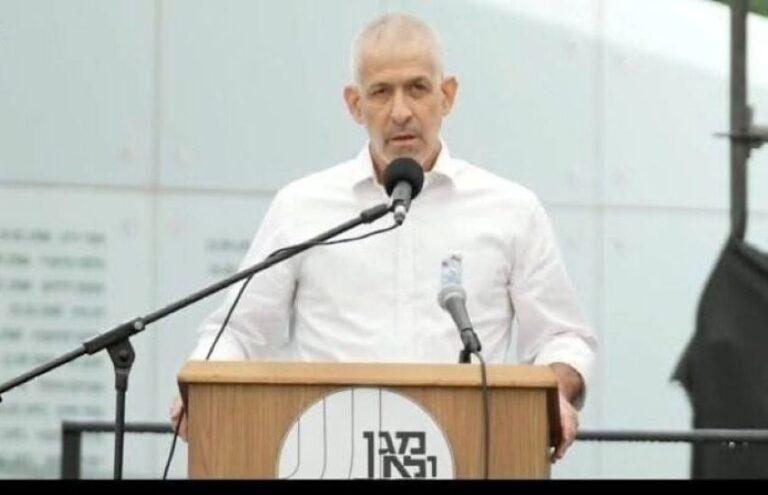by Rabbi Yair Hoffman for 5tjt.com
The Sidra of vezos habracha has ten sections.
- Moshe Blesses the Shvatim and begins with Reuvain.
- The Sidrah begins with “And this is the blessing.” But why did Moshe Rabbeinu choose to bless them at this particular point? The Abarbanel answers that previously he ended with a “shira” that spoke of punishments and reproving. Moshe Rabbeinu does not want them to give up hope. He wishes to imbue them with a sense of endurance and to be able to persevere. He therefore gave them a blessing to inspire them. A leader must also look to imbue his charges with this.
- Blessing Yehuda – Moshe said, “And this for Yehudah.” And he said, “O Hashem, listen to Yehudah’s voice and bring him to his people; may his hands do battle for him, and may You be a help against his enemies.” What voice of Yehudah did Moshe Rabbeinu ask Hashem to listen to? The Ohr HaChaim explains that it is the voice of Yehudah admitting fault. Self-justification distorts reality and Yehudah’s doing so reflected humility. Taking responsibility allows for better decision-making. Yehudah paved the way for all of Klal Yisroel to do this (Sfas Emes). This earned Yehudah the remarkable bracha listed here.
- Blessing Levi – The pasuk tells us, “And of Levi he said: Your Thummim and Your Urim be with Your holy one, whom You did prove at Massah…at the waters of Meribah.How did Hashem test or prove them? Rashi explains that the tribe of Levi did not complain with the other murmurers. We see here a remarkable insight. Neither did Shaivet Levi complain nor did they join with other murmurers. There appears to be a special even stronger yetzer hara to join in with others in murmuring and complaining. Shaivet Levi didn’t do that. They remained davuk bashem. Many meforshim explain that it was because of this quality that they earned the Urim v’Tumim and the title of “ish chasidecha.”
- Blessing Binyomin – And of Benjamin he said, “Hashem’s beloved one shall dwell securely beside Him; He protects him all day long, and He dwells between his shoulders.” What does “and He dwells between his shoulders” mean? The Midrash Tanchuma Miketz (37) explains that Binyomin received these blessings in the merit of his being accused of stealing the goblet and being struck between the shoulders and bearing with it without complaint – not taking revenge. He let their behavior slide. This is a lesson for all of us to let things slide.
- Blessing Yoseph – Moshe says regarding Yoseph: And with the sweetness of the land and its fullness.. may it come upon Yoseph’s head and upon the crown of the one separate from his brothers. What is the significance of Yoseph being separate from his brothers? The Abarbanel explains that of all the brothers – Yoseph was the one most removed from gashmius. It is for this reason that he obtained these blessings. We can make two observations here. The first is that even though the brothers were on a very high spiritual plane – there are still very high steps that one can achieve when one is removed from the physical. The second observation is that Yoseph is being rewarded in the very area that he was so removed from! The answer is that we don’t need these incentives but they are there. When we begin the journey toward the spiritual – the assurances of physical success is there so that we will head toward that path.
- Blessing Zvulun and Yissachar – Moshe Rabbeinu states: Rejoice, Zvulun, in your departure, and Issachar, in your tents” We understand why Zvulun will rejoice as he is travelling on business and will undoubtedly succeed. But why is Issachar rejoicing in his tents? The Ohr HaChaim explains that Issachar is making his sojourn in this world temporary – as if he is in a tent. In other words, he realizes the silliness of the looking at this consumption oriented world as the end all and realizes the temporal nature of it. Rather he values, spiritual accomplishments and the idea of helping others. This is something in which he should truly rejoice. He’s happy because he is not in the rat race.
- Blessing Gad The Kli Yakar explains that on account of the tribe of Gad’s volunteerism, where they volunteered to be the pioneers at the front of the army, Gad received blessings. This is called tzedakah – a charitable worthy act. Giving to others has enormous benefits. Rabbi Dessler writes that it actually connects the giver to the recipient and creates strong bonds.
- Blessing Dan and Naftali – And of Dan he said: “Dan is a young lion, streaming from Bashan.” What does “streaming from the Bashan” mean? The Rokayach explains that the heroes of the tribe of Dan would wait in hiding at Har Bashan for marauding regiments to come by and they would stream down from the mountain and leap into battle in order to protect their people and save their lives. This points out both the importance and value of bravery as well as value of saving life. It was these two factors that earned Dan the blessings. When the verse describes Naftali as Sva Ratzon – it means that he was filled with the desire to do Hashem’s will. Perhaps this is why the blessings of the two were combined.
- Blessing Asher and all of Klal Yisroel – And of Asher he said: “May Asher be blessed more than the other sons. He will be pleasing to his brothers..” What is the need further for Asher to be pleasing to his brothers? The Seforno explains that notwithstanding that he will be more blessed than his brothers – they will still not be jealous of him – rather he will be beloved. Moshe Rabbeinu is teaching us the grave necessity to watch out for jealousy and to take steps to ensure that it does not happen. If it is true among the holy tribes – it can definitely be true among every one else. This is an important lesson – very few are above it.
- Moshe Passes Away – “And Moshe went up from the plains of Moab to Mount Nebo, [to the] top of the summit facing Yericho. And Hashem showed him all the land: The Gilead until Dan..” Why did Hashem show him the land at this point? The Ramban explains that Moshe loved his people tremendously. When Moshe would see how great the land was – he would be happy. There are a few wonderful lessons in this Ramban. We see the importance of loving others because you will genuine be happy for their good fortune. Also, we see the importance of bringing joy and happiness to people at the end of life. This is what Hashem did and we should emulate Him.
The author can be reached at [email protected]











